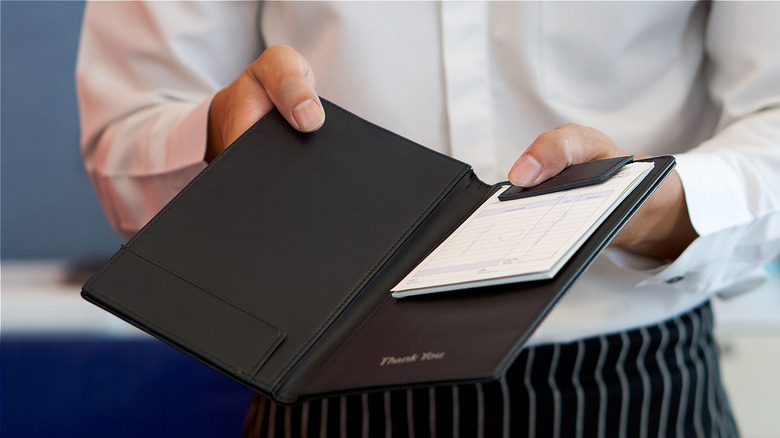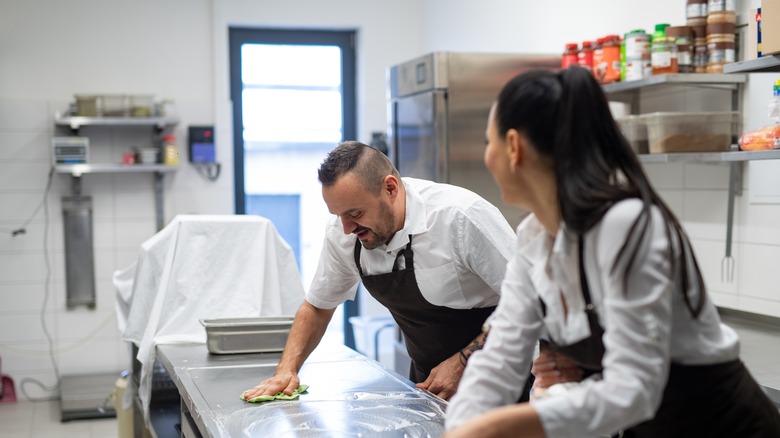What Restaurants Actually Do If You Can't Pay Your Bill
We've all watched the scene play out in the movies. A group of teenagers walks into an unsuspecting restaurant, orders a mountain of decadently fried foods, pigs out to their hearts' content, all before running out of the eatery before their server can catch them. This illegal act is known colloquially as 'dining and dashing', although many restaurants (and law enforcement officials) call it a form of theft. While most of us have probably never perpetrated an act of dining and dashing, we may wonder how restaurants actually respond when faced with a real-life eat-and-run situation.
It turns out that the way restaurants choose to deal with the incident depends a lot on the offending diner's intent. In an interview, Jose Zepeda Jr., the former General Manager of a popular San Francisco eatery said that managers may choose to rely on good faith that customers will return later to pay off their outstanding bills.
Alternately, other restaurants may write up an I.O.U. for customers who can't pay their bills, a strategy that the owner of San Diego's Cafe 222 says works well. "Unbelievably, every single guest would always come back and pay their bill!" said the chef when asked about how to handle non-payment.
Restaurants won't make you wash dishes to pay off your debt
While many of us have probably heard the urban myth that patrons who can't pay up will be forced to wash the restaurant's dishes until their debt has been settled, it turns out that modern food safety laws make this form of recourse illegal. The FDA has some serious rules surrounding who can and can't enter the kitchen when food is being prepared which restaurants have to abide by to be considered food safe. This means that anyone who isn't strictly necessary to the food preparation process will be asked to leave the kitchen, which of course includes non-paying patrons.
Even though dishwashing is out of the question, restaurants do have a few other options to recover payment that doesn't involve getting sudsy. Restaurants may ask guests to leave some form of collateral behind when they can't pay their bill, such as a cell phone or piece of ID, per Restaurant Clicks. This is to give the establishment's staff peace of mind that they will be compensated for their food.
As a last resort, restaurants may elect to get law enforcement involved if guests are uncooperative with other solutions offered by the restaurant. What happens next depends on the amount you actually owe to the establishment and the state where the incident occurred, as explained by a Texas law firm. While legal recourse seems unlikely, paying for your food in full is always the best policy.

